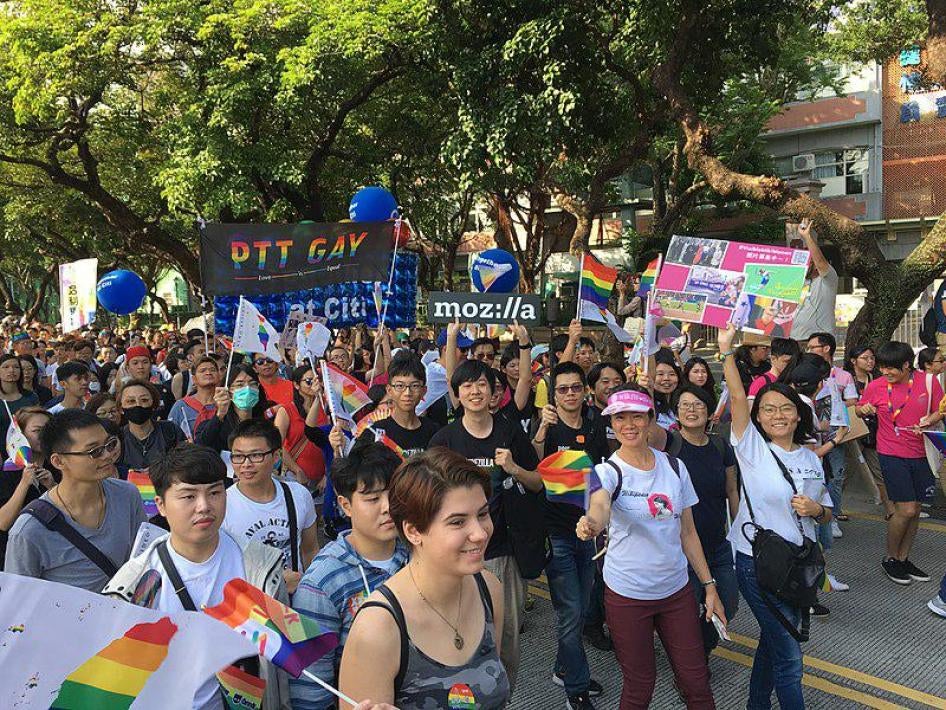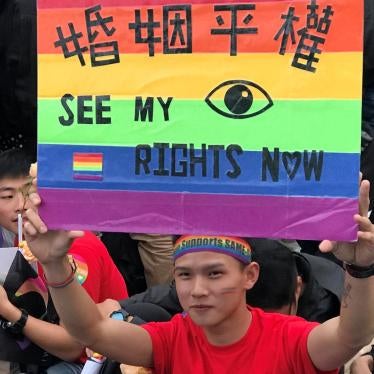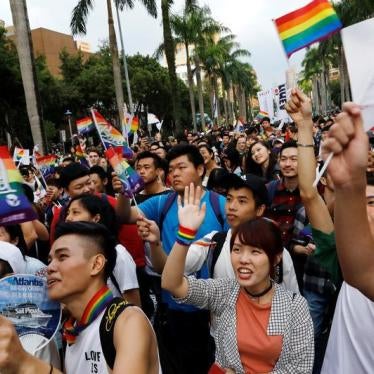The November 24 referendum on same-sex marriage in Taiwan delivered disappointing results to proponents of marriage equality. But while it sheds light on current public opinion in Taiwan, it’s not the end of the road for same-sex marriage.
In fact, it makes all the more urgent for Taiwan’s lawmakers to heed a May 2017 Constitutional Court ruling and pass legislation to protect same-sex marriage rights. The deadline is six months away.
In a series of referendum questions proposed by groups both for and against the rights of lesbian, gay, bisexual, and transgender (LGBT+) people, Taiwan’s voters were faced with a confusing skein of choices. They were asked twice about same-sex marriage rights: if they supported same-sex marriage, and then again, if they agreed that marriage should be confined to “a union of a man and a woman”.
They were also asked twice about education: if they supported Taiwan’s practice of including sexual orientation and gender identity issues in the school curriculum, and, again, if they wanted an end to this type of education.
In the vote, twice as many Taiwanese voters opposed marriage equality. A similar proportion voted for ending inclusive sexual education. But while lawmakers may note how public opinion was reflected in the poll, the outcome has no bearing on the parliament’s legal responsibility to carry out the Constitutional Court ruling – and its international human rights law obligations – to protect LGBT+ people.
In May 2017, Taiwan’s Constitutional Court declared that the definition of marriage as “between a man and a woman” is unconstitutional. The court gave parliament two years to amend existing laws or pass new legislation to include same-sex marriage. While there have been attempts in Hong Kong, Nepal, and Thailand to recognise same-sex relationships, Taiwan remains poised to be the first Asian country to recognise this fundamental right.
But in an attempt to circumvent the ruling, an anti-gay marriage group called the Happiness of the Next Generation Alliance collected sufficient signatures to trigger the referendum. It quickly became an international proxy battle for the politics of intolerance. US-based groups that failed to defeat marriage equality at home, including the National Organization for Marriage, poured resources into the anti-equality campaign in Taiwan, using familiar tactics that exploit negative stereotypes and provoke fear.
LGBT+ equality campaigners marshalled their own referendum questions on marriage rights and inclusive education in an attempt to garner popular support and scuttle the anti-rights movement. Throughout this process, Taiwan’s gay and transgender communities bore the cost in human dignity. Other countries around the world that have voted on marriage equality in recent years – including those endorsing it – have seen how this type of spectacle can leave deep wounds.
Referendums on whether to recognise individual rights are dangerous. Ireland upheld LGBT+ rights when the majority Catholic country voted overwhelmingly in favor of marriage equality in 2015. Australia’s 2017 postal plebiscite similarly indicated popular support.
But fundamental rights should never go up for a popular vote. Regardless of the outcome, such votes are akin letting the electorate decide whether someone else should enjoy the same basic rights that they do. Should the electorate decide whether domestic violence should be criminalised? Or whether an unpopular ethnic minority should enjoy freedom from discrimination? Or whether members of a religious group can openly practice their faith?
The referendum process in Taiwan or anywhere else casts a disturbing shadow: it forces LGBT+ people – a minority long subjected to discrimination – to open their lives and identities to public debate, scrutiny, and evaluation. And the public rhetoric in Taiwan was particularly corrosive.
Beyond dealing a blow to LGBT+ adults, the process did harm to all Taiwanese youth by subjecting their rights to information and education to a popular vote – one that ultimately resulted in restrictions on content about gender and sexuality in schools.
United Nations human rights experts have repeatedly highlighted the importance of accurate and inclusive education and information as a means of reducing the rates of maternal mortality, abortion, unwanted pregnancies and HIV.
But the referendum’s outcome does not absolve parliament of the Constitutional Court’s order – it only makes it more urgent than ever.










